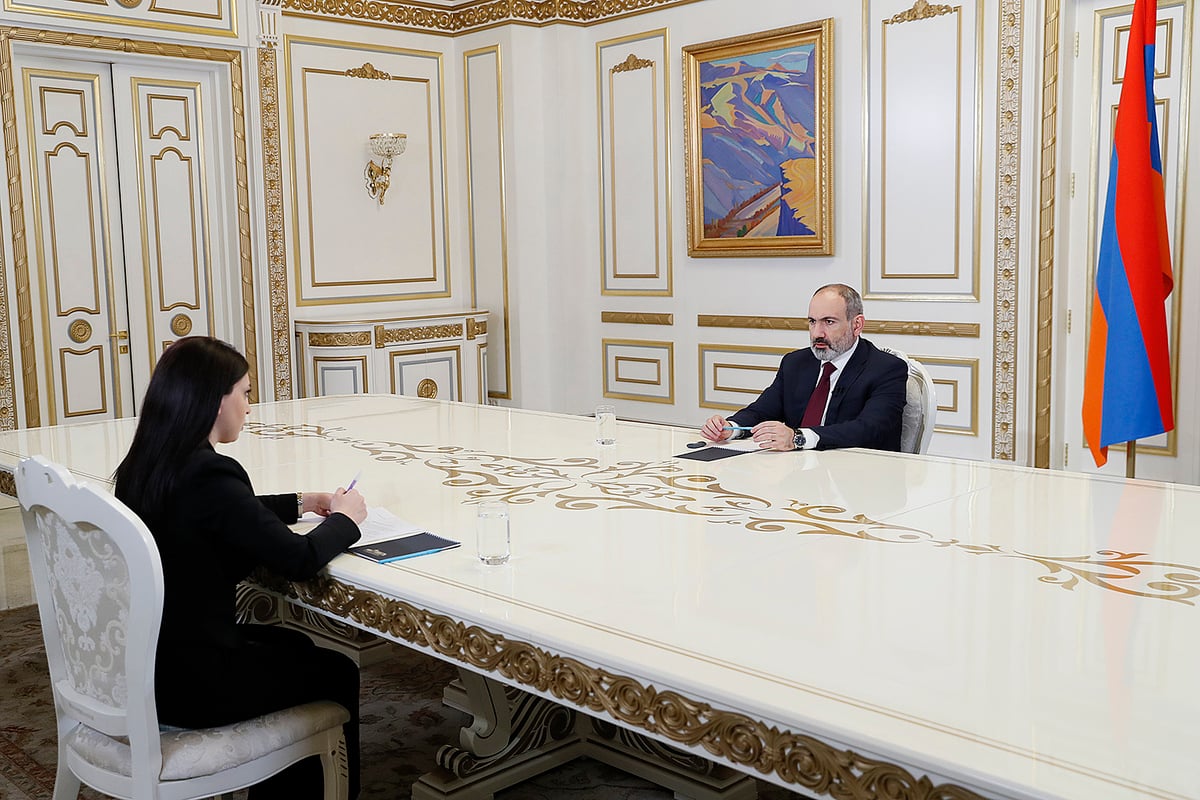The RA Prime Minister Nikol Pashinyan hastily calls for press conferences. And very quickly organizes the accumulation of questions, their screening, and editing.
Being a good orator and debater, he prefers to make press conferences more comfortable and manageable with pre-filtered questions and organizes them less frequently than he did in 2018, 2019, 2020, and 2021.
At first, the number of press conferences decreased, then the physical presence of journalists asking questions at press conferences was eliminated (the justification was the coronavirus, but it continued even after the pandemic), and the questions were read by the speaker or one specially selected person. Then the questions themselves started to disappear.
In other words, the questions did not reach the addressee, because they disappeared or were edited in such a way that the essence of the question was lost.
Media editors often talked about this situation, addressing not so much the government, but their community. And when it became clear that the Prime Minister would be holding a new press conference on June 27 and informed the media about it a day ahead of time, the media woke up as protesters.
It turned out that the rather fragmented, polarized and sometimes following not very high ethical rules media field began to unite on the occasion of the Prime Minister’s new press conference.
Nikol Pashinyan took a step to unite them against him. It is a very surprising step, of course.
At first, a group of media outlets (mainly pro-poles or opposition political wing) issued a statement that they refused to send formal questions to the prime minister.
They said that usually “questions from pro-government media, Telegram channels, and bloggers are heard, which, according to all, are pre-arranged with the organizers of the event, and in the case of other media, the questions are either ignored, or edited, or distorted.”
“Thus, the opportunity of the public to receive proper information is essentially limited.
We consider that the communication of the head of the country with the media in such a format is discriminatory, ineffective, and contradicts the key principles of democracy: transparency and accountability.”
Making a small historical digression, we can remember that years ago, when Serzh Sargsyan was the President of the Republic of Armenia, he followed exactly the same path that Nikol Pashinyan is taking now (perhaps unwittingly). And in this case, both are wrong.
Serzh Sargsyan did not need to communicate with the media, because the field was already under his control, and he preferred to remove the press conference from circulation and replace it with the genre of intimate conversations. For example, in 2013, he received editors-in-chief of eight media and there he spoke his famous words regarding the “unpleasant atmosphere.”
He attributed the rate of emigration to the role of media:
“The root cause of emigration is precisely that unpleasant atmosphere, the fact that people do not see light, they do not see hope. Why? Because for many years, at least two TV stations, dozens of print and electronic media talk only about bad events, only darken them.”
Perhaps Nikol Pashinyan doesn’t want the media to darken him either, he wants only white and soft issues.
And it is very sad that he can speak in the same way as Serzh Sargsyan:
“I can list media that did not see a single positive thing. I do not urge them to refrain from cursing me, my colleagues, others, my brothers, or my children. If I have assumed the position of the President of the Republic, I have to swallow anything bitter. But not everyone has assumed the position of the President of the Republic, right?”
If we generalize this trend, we can say that the media is the bearer of collective memory.
The mass media not only remember a lot, but they are often memorable. If they can unite against it, they will do it faster than in the name of any person, idea, state, or humanistic idea.
In an unpleasant atmosphere, extreme behavior, including boycotting the first person of RA, becomes effective. Already in 2018, it became clear that the controlled, blurred, and safe options of communicating with the public are giving way to more risky formats. Nikol Pashinyan proved it. And now he is not ready for it.
Nune Hakhverdyan







